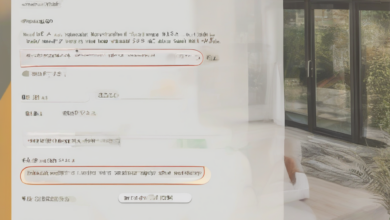Home Equity Loan Rejection: Understanding the Deal Breakers

Home Equity Loan Rejection: Understanding the Deal Breakers
Securing a home equity loan can be a powerful financial tool, allowing homeowners to tap into their built-up equity for various needs. However, not everyone qualifies. Understanding the factors that can disqualify you is crucial before applying, preventing wasted time and potential damage to your credit score. This comprehensive guide outlines the key reasons why your home equity loan application might be rejected.
Low Credit Score
Your credit score is arguably the most significant factor lenders consider. A strong credit score demonstrates your responsible financial history, increasing the likelihood of loan approval. Lenders use credit scores to assess your risk; a lower score suggests a higher risk of default. Generally, a credit score of 660 or higher is preferred for favorable interest rates and terms. Scores below this threshold significantly reduce your chances or lead to higher interest rates.
- Impact: Rejection or significantly less favorable terms.
- Mitigation: Improve your credit score by paying bills on time, reducing debt, and disputing any inaccuracies on your credit report.
High Debt-to-Income Ratio (DTI)
Your debt-to-income ratio (DTI) represents the percentage of your monthly income that goes towards debt payments. Lenders carefully review this metric to gauge your ability to manage additional debt. A high DTI indicates that a significant portion of your income is already allocated to debt, raising concerns about your capacity to repay a home equity loan. A DTI above 43% often triggers rejection or necessitates a higher interest rate.
- Impact: Rejection or higher interest rates.
- Mitigation: Reduce existing debt, increase your income, or apply for a smaller loan amount to lower your DTI.
Insufficient Home Equity
Home equity loans are secured by your home’s equity—the difference between your home’s value and what you owe on your mortgage. Lenders generally require a certain percentage of equity, typically 15% to 20%, before approving a loan. If you have little to no equity, your application is likely to be rejected. This is because the lender’s security is diminished, increasing their risk.
- Impact: Rejection.
- Mitigation: Pay down your mortgage, increase your home’s value through renovations (carefully considering the cost-benefit analysis), or wait until you build more equity.
Low Appraisal Value
Before approving a home equity loan, lenders often require an appraisal to determine your home’s current market value. If the appraisal comes in lower than anticipated or lower than your outstanding mortgage balance, it reduces your available equity, potentially leading to rejection. Market fluctuations can significantly impact appraisal values.
- Impact: Rejection or reduced loan amount.
- Mitigation: Ensure your home is well-maintained and presented in its best light for the appraisal. There is limited control over market fluctuations, so this is not always mitigatable.
Negative or Irregular Income
Consistent and verifiable income is essential for qualifying for a home equity loan. Lenders need assurance that you have a reliable source of income to repay the loan. Irregular income, inconsistent employment history, or self-employment with inconsistent income can be significant hurdles. They require proof of income, typically through pay stubs, tax returns, or bank statements.
- Impact: Rejection or stricter loan terms.
- Mitigation: Provide comprehensive and verifiable documentation of your income. Consider consolidating income streams for easier verification.
Problems with Your Mortgage
Any issues with your existing mortgage, such as late payments, foreclosures, or bankruptcies, can significantly impact your eligibility. Lenders view these as red flags indicating a potential inability to manage debt responsibly. A history of mortgage delinquencies dramatically reduces your chances of approval.
- Impact: Rejection or significantly less favorable terms.
- Mitigation: Address any existing mortgage issues promptly. Excellent repayment history after any past issues can sometimes mitigate the risk.
Recent Bankruptcy or Foreclosure
Recent bankruptcies or foreclosures are serious blemishes on your credit history. Lenders are hesitant to extend credit to individuals with a history of financial distress. The waiting period before you can apply for a home equity loan after a bankruptcy or foreclosure varies depending on the lender and the specifics of your situation, often several years.
- Impact: Rejection.
- Mitigation: Rebuild your credit and financial stability after the bankruptcy or foreclosure. Wait the required period before reapplying.
Property Condition Issues
While less frequent, significant property condition issues can affect loan approval. If the lender’s appraisal reveals substantial repair needs, they might be hesitant to lend, as the property’s value could decline significantly. This is especially true if the needed repairs are extensive and costly.
- Impact: Rejection or reduced loan amount.
- Mitigation: Address any significant property condition issues before applying for the loan.
Incomplete or Inaccurate Application
An incomplete or inaccurate application can result in rejection. Lenders require accurate and complete information to assess your financial situation. Omitting information or providing false information can lead to immediate disqualification.
- Impact: Rejection.
- Mitigation: Thoroughly complete the application, ensuring accuracy and providing all requested documentation.
Other Factors Affecting Approval
Beyond these major factors, several other elements can influence a lender’s decision. These may include the type of home equity loan you’re seeking (home equity loan vs. home equity line of credit), the loan-to-value ratio (LTV), and the prevailing interest rates. Lenders also consider your employment stability and the length of time you’ve lived in your home. A shorter tenure may raise concerns about your commitment to the property.
- Impact: Rejection or less favorable terms.
- Mitigation: Shop around for the best loan terms and choose a loan type suitable for your financial situation. Demonstrate long-term stability in your employment and residency.
Improving Your Chances of Approval
If you’re concerned about your eligibility, proactive steps can significantly improve your chances. Focus on improving your credit score, reducing your debt, and ensuring your financial records are in order. This includes keeping a close eye on your credit reports for any errors and rectifying them promptly. Thoroughly research lenders to compare rates and terms, selecting those that best align with your financial profile. Consider pre-qualifying for a loan to get an idea of your eligibility before submitting a full application.
Obtaining a home equity loan requires careful planning and preparation. By understanding the potential deal breakers and taking proactive measures to address them, you can significantly enhance your chances of securing the financing you need.
Conclusion: So above is the Home Equity Loan Rejection: Understanding the Deal Breakers article. Hopefully with this article you can help you in life, always follow and read our good articles on the website: lorespressozim.com



